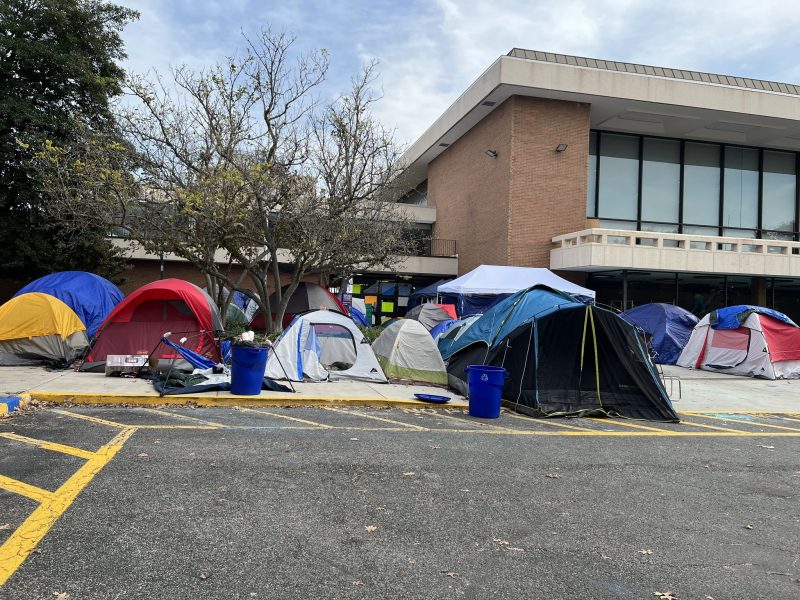
A lot more at stake for Biden & Harris at Howard than rodents
A prestigious institution in Washington DC is on the boil for the last four weeks; and students do not seem to be bothered that they have not showered, sitting in protest least concerned if authorities have threatened to throw them out of the school.

A prestigious institution in Washington DC is on the boil for the last four weeks; and students do not seem to be bothered that they have not showered, sitting in protest least concerned if authorities have threatened to throw them out of the school.
Howard University, within walking distance of the White House, is one of 107 or so Historically Black Colleges and Universities (HBCUs) that cater to the education of Black Americans and disadvantaged minorities fighting to keep things going in the face of regular funding cuts from Congress. And if students are protesting, it is because their basic living quarters are swamped by roaches and filled with mould and crawling with a student’s best night time studying friend, a rodent!
On October 12, students occupied the Blackburn Center from where they were initially thrown out. But they have re-assembled at the student centre again and are peacefully camping inside and outside in an assortment of ways, stressing that the University that was founded in 1867 and over the years having produced its share of Rhodes, Marshall, Schwarzman, Fulbright and Pickering Fellows should not turn its back on students by denying decent dormitory facilities. To add to the glowing list of graduates is the current Vice-President Kamala Harris, who did her Bachelor’s majoring in Political Science and Economics (1982-86) from this institution, as also being a member of the first African American Sorority, Alpha Kappa Alpha.
Howard University is not witnessing protests for the first time in its rich history, only this time questions are being raised about the extent to which an administration, that had placed its bets on bettering education for the disadvantaged, can continue to remain on the sidelines and not take sides, by design or accident. In particular, Kamala Harris’ silence has not gone unnoticed, especially in the media. “…should the vice-president — who lives just three miles from the protests and used the campus as a backdrop to promote Democrats’ voting rights agenda enter the fray? What would that look like? How would that tip the scales of a debate over living conditions at “The Mecca,” one of the nation’s most beloved historically Black universities?”, asks Erin Logan of the Los Angeles Times.
Also read: Biden and Democrats are in denial and whistling in the dark
If Biden and Harris, especially the latter by virtue of her being a distinguished alumnus, are unwilling to jump into this issue, it is not without good reasons. It opens up a full-blown discussion of HBCUs and the slow movement in any large-scale infusion of funding, despite all talk at intermittent times of history. And by themselves, HBCUs have not been able to come anywhere near the endowments package that the white colleges and universities are able to generate.
For instance, if Harvard’s endowment in 2020 was said to be around $40 billion, Howard’s in the same year was around $700 million; and collectively it is said that the ten largest HBCU endowments post a combined total of $2 billion, the same thing for white institutions would be $200 billion. And this opens a pandora’s box of racial inequalities of wealth.
But the offices of Biden and Harris cannot maintain a stoic silence for long, even if they are fully aware of the fact that the student dormitory demands at Howard are pretty much what others face at many HBCU institutions.
But, in the immediate context, both President Biden and Vice-President Harris are seeing other prominent Democrats who have little to no connection with Howard University—non African-American—like Senator Elizabeth Warren jumping into the fray, asking the administration to take up the demand of students.
Also, Biden and Harris have another headache on their hands, with lawmakers cutting funding from the Infrastructure Bill and the larger social spending bill that would impact minority and disadvantaged institutions.
Media reports have it that originally in the social spending bill about $45 billion was set apart for HBCUs and other institutions; and this figure has been cut to $2 billion, the problem coming from the Democrats in Congress whoare divided between the so-called centrists and progressives, each jockeying a larger share for their preferred programmes.
Some argue that the bottom-line is that the debate over future funding for institutions addressing disadvantaged students is not about mould and mushrooms growing in bathrooms only but of education per se and in the direction of addressing the challenges faced by the black and other marginalised communities.
Also read: Political right in the US and its idea of Biden-Harris rift
Historically, African Americans have been with the Democrats in spite of the best efforts of the Grand Old Party, including the former President Donald Trump, in the recent years. And the Democrats need this solid vote of the community, if they are going to do politically well in the mid-terms of 2022 and in the Presidential election of 2024. The problem for the Democrats as seen in the elections of Governors in Virginia and New Jersey is that, there is a President and a Vice-President whose approval ratings individually are in the 30s. And staying away from taking a position on major issues is not going to sit well either with the African American community, Independents or Democrats.
(The writer was a senior journalist in Washington DC for about 15 years, covering North America and the United Nations)
(The Federal seeks to present views and opinions from all sides of the spectrum. The information, ideas or opinions in the articles are of the author and do not necessarily reflect the views of The Federal)

